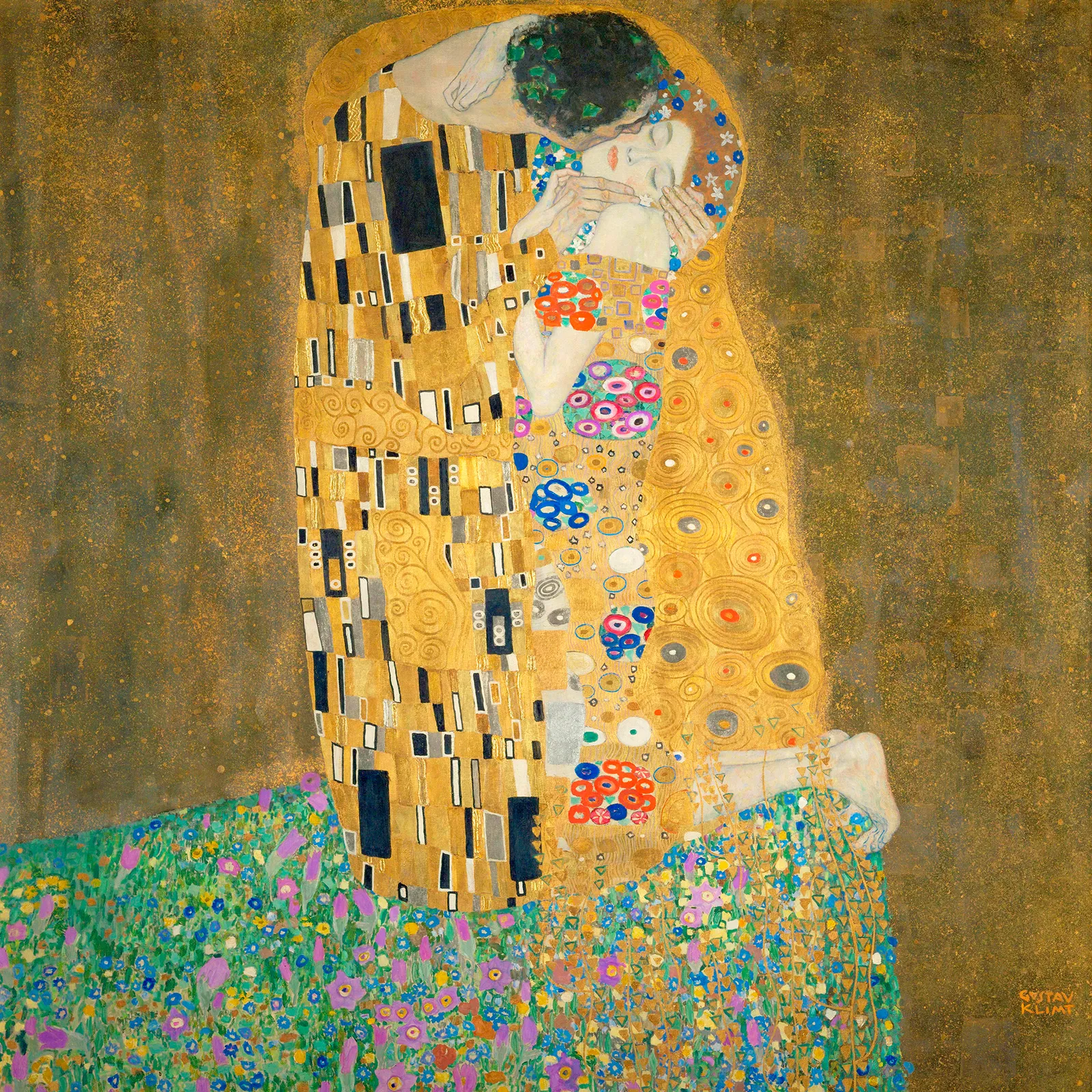First published in The Ekphrastic Review
The painting hangs heavy, a burdensome cloak
of thick, layered oils and glinting flecks of gold,
seventy-two inches of life-sized,
soul-sized, figures enmeshed in golden
embrace, the Viennese viewing room empty,
but for me and my love.
We cannot see his face but we can feel
his yearning. Others see it as romantic but I
imagine it is mournful; a longing
not for what could take place under his golden
robe, but what has been and has passed,
the desire for what used to be.
Her eyes are closed; I wonder if
she dreams of a time when a kiss was just
a kiss, and not a prelude to the act of
conception; if she grips his neck to remind him
of making out drunk on red wine and
two bodies moving to music and lust.
His hold is less embrace than panicked clutch,
as if his sun-kissed hands are all that keep
her flaxen body from crumbling to the garden floor,
a desperate clinging on to protect her from
dirt and the strangling weeds that pursue her
and crawling into herself.
Her dainty hand does not drape dreamily
around his neck, but rather knuckles scrape
and claw and grasp at flesh and muscle and
the familiar need to save
what is left of her womanhood, a hood
that is without mothering.
Gustav has drawn a peculiar cliff off the edge
of the floral blanket below them; we glimpse a peek
into the drab void, the precipice of which is wedged
with her lengthy, aching toes pressing downward,
feeling the breath of the air below and
craving its blight.
He presses lips into cheek as if to let go
of skin is to let go of her, of them, of
love, their togetherness slipping into the
meadow below, awash with the soil
of infertility and despair and shame,
of failing him.
Some say he must be Orpheus
and she—a translucent, fading silhouette—Eurydice;
and perhaps even they too, struggled,
I imagine, she—trying to procure for him a child,
before her descent to Hades; he—trying to hold onto the she
she was before, keep her in the now.



